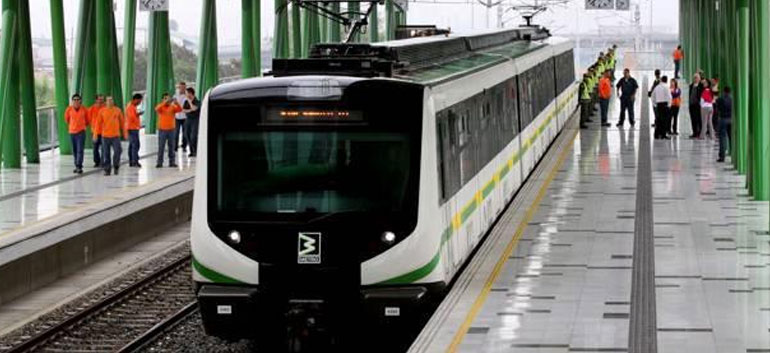Colombia’s Ministry of Culture created a commission to organize cultural events on the Medellin metro system after a video showing metro police forcefully ejecting a violinist caused public outcry.
As reported by ADN news, officials from the Medellin metro system met with representatives from a wide range of cultural organizations on Tuesday, to discuss integrating cultural events into the public transport system, after a number of highly publicized events this month, which saw cultural performers forcefully ejected from metro stations.
The meeting, which was attended by Minister of Culture Maria de el Rosario, saw the creation of working groups, which will focus on six main areas in regards to integrating culture into the metro.
- Sustainable mobility
- Communication
- Art and culture
- Procedures
- Rules and restrictions
- Inclusion and accessibility
- Urban landscape
The new commission aims to discuss topics such as incorporating new “greener” transport options, such as public bicycles and underground parking to encourage use of public transport. New types of media are to be used to generate public awareness and promote civic unity through art campaigns.
They aim to integrate culture and art into the public transport system in a safe and organized manner, which should not lead to further disruptions for the public.
The movement was sparked by two well-publicized incidents in which police responded in a heavy-handed manner to public displays of art and music displays on the metro system.
A video which spread quickly on social media sites showed a young violinist being forcefully ejected from a metro carriage for performing on August 8. After resisting ejection from the carriage, he was treated roughly by attending police officers.
In an act of protest to raise awareness of the need for change in the public transport system, a group organized a silent reading in San Antonio station on August 13, which led to an evacuation of the public and has been universally described as “badly managed.”
Sergio Restrepo, organizer of the peaceful protest called “violins for bread rolls,” said in an interview with ADN:
“We were at the station. Each person stood reading poetry in silence. Suddenly we were surrounded by guards and police and the next moment they announced the evacuation order. We did not intend to do anything violent.”
The extreme response has led cultural groups in the city to call for changes, to allow freedom of expression in a safe and organized manner, and avoid disruptions to the public as seen at San Antonio station, or unnecessary mistreatment of passive performers as occurred on August 8.
Sergio Restrepo, organizer not only of the San Antonio silent reading protest, but also initiator of Tuesday’s meeting between metro officials and cultural representatives, stressed the importance of modernizing the metro system to the advantage of Medellin’s citizens. He said:
“There is a large consensus that the metro is important for everyone. We want to protect it, but somehow we must also update it into a ‘cultural metro’ with a project that could be used to discuss the topic of civic culture.”
“We want disabled people, farmers, or people from different gender groups to be able to express themselves on the metro.”
In his statement to ADN, Restrepo said he wants to create a modern metro system where people from all walks of life can travel safely and become involved in the city’s vibrant arts scene.
In a recent interview with El Tiempo, director of the faculty of arts at the highly esteemed University of Antioquia Francisco Londoño, said that he had received authorization from the metro authorities to organize musical and artistic entertainment on the metro, on the grounds that performers did not ask for or accept money from passengers.
Londoño stressed the need for an organized system in which arrangements and limitations could be agreed with authorities, such as avoiding performing at busy peak times when “a violinist would most likely take out someone’s eye with his bow.”
He suggested a move towards a more open, cultural metro system such as those seen in New York, Paris, or Barcelona, where performers are allowed to entertain passengers during their journey.


